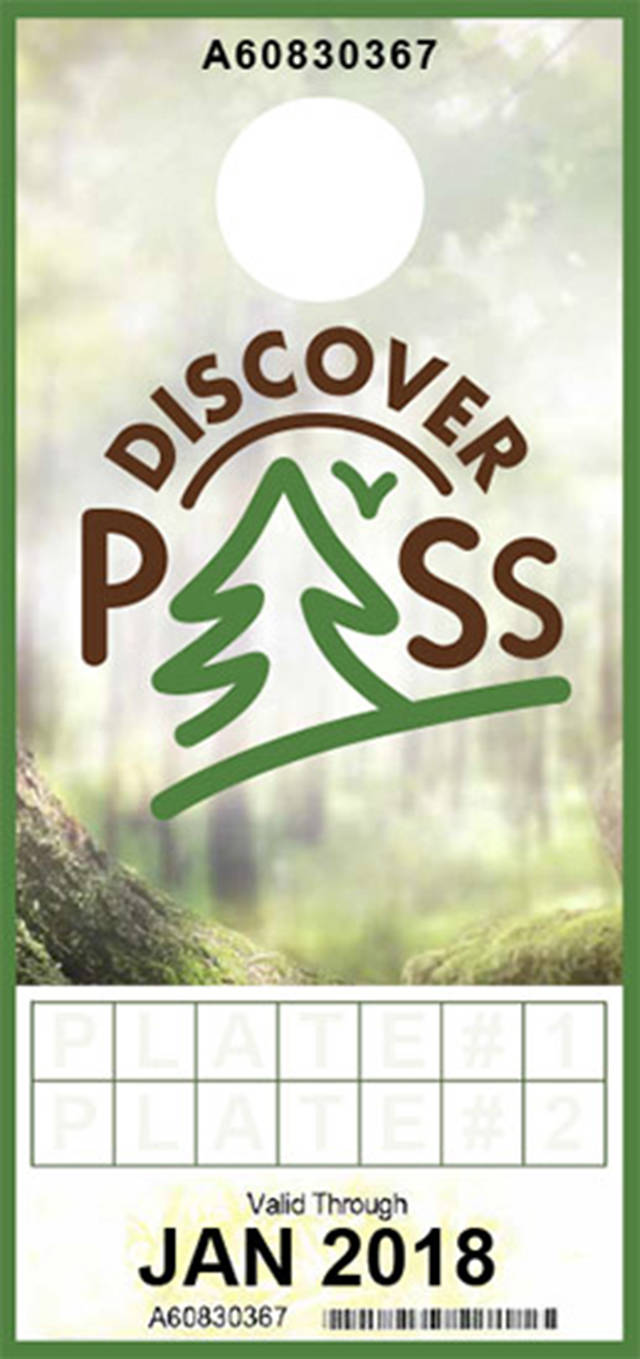OLYMPIA — A team tasked with studying recreation fees is recommending that lawmakers decide on a broader source of money for state lands and get rid of user passes, such as the Discover Pass.
The Legislature ordered the study in 2016, setting a goal to improve “consistency, equity, and simplicity” in fees while keeping up with the cost of managing public lands. The work, guided by the William D. Ruckelshaus Center, pulled in representatives from state and federal agencies, outdoor recreation groups and nonprofits. There was a public survey this summer, and a final report was released Dec. 15.
The report suggests “pass-free access” for state lands would be the simplest and most fair system. One option to pay for the care of public lands without user passes would be an additional fee on car tabs.
“The funding source given the most consideration was a mandatory public land management fee at the time of vehicle registration,” according to the report. “However, the Leadership Team did not prescribe this source and was open to other funding methods.”
The group figured that a registration fee could land somewhere between $7 and $15, but noted that further cost analysis would be needed.
Nearly 40 percent of the state — about 20 million acres — is public land. Recreation passes for destinations such as state parks or national forests were created to offset gaps in funding. Use of public land has increased, according to the report, but the amount of tax dollars set aside for its maintenance has dwindled. State parks, for example, once relied on the state general fund for 80 percent of their budget. That has dropped to 20 percent.
The Discover Pass was created in 2011 for state parks and land managed by the departments of Natural Resources and Fish and Wildlife. It costs $30 annually, or $10 a day.
It is just one of more than 20 different state and federal recreation passes used in Washington. They can cover parking, daily or annual admission, and specific activities such as hunting or backcountry camping. Discounts are available for seniors, veterans and other groups.
Though eliminating state recreation passes is the preferred recommendation, the report presents other options the team felt were worth consideration. One would build on the current system of a two-vehicle pass, but would seek to bundle multiple state and federal passes into a single hangtag or sticker. The other would be a less expensive pass for one vehicle.
Regardless of the funding structure, agencies that manage public lands should work on a joint information portal and coordinated fees, discounts and free admission days, according to the report.
The group also considered a combined Discover and “America the Beautiful” pass, but decided against it because it would require U.S. congressional approval. Also rejected were ideas to create agency-specific license plates, a more expensive pass that could transfer between more vehicles, and a permanent fee advisory board.
Activity-specific fees, such as backcountry camping permits, hunting and fishing licenses or recreational vehicle tabs, should remain, according to the report. The team also concluded that public lands should continue to receive some support from the state general fund.
There already is an opt-out donation for state parks when drivers renew their tabs. It brings in about $14 million per two-year budget cycle.
The argument for tying funding for public lands to vehicles, according to the report, is that most visitors arrive by car and maintenance of parking lots and trailheads is a significant cost. Also, passes linked to vehicles are easier for rangers to enforce.
More than 60 percent of Snohomish County is public land. Most is federally owned forest. There also are state Natural Resources and Fish and Wildlife lands, and two state parks on nearby Camano Island in Island County.
Kari Bray: 425-339-3439; kbray@heraldnet.com.
Talk to us
> Give us your news tips.
> Send us a letter to the editor.
> More Herald contact information.

























